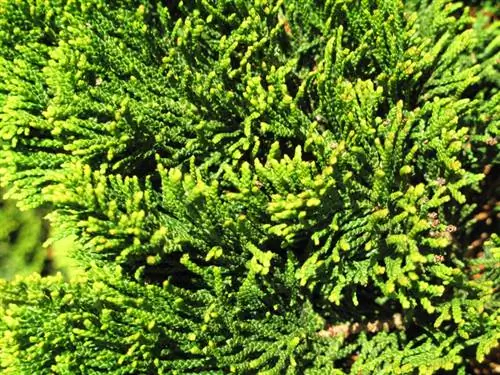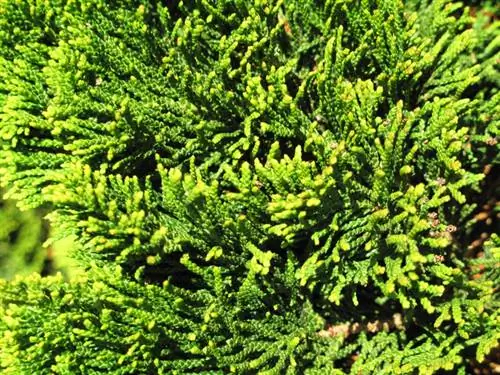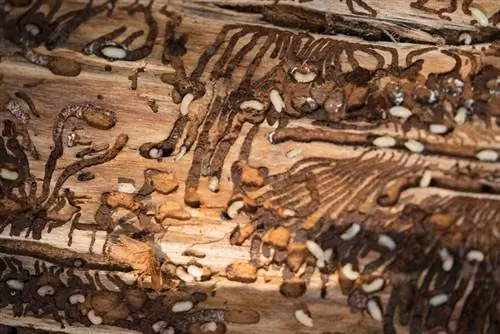- Author admin leonars@hobbygardeners.com.
- Public 2023-12-16 16:46.
- Last modified 2025-06-01 06:02.
The mussel cypress is a little tricky when it comes to location and care. In an unfavorable, cool place with too much moisture, it is more likely to suffer from diseases or pest infestations. How you can recognize illnesses and what you can do about them.

What diseases occur in a mussel cypress and how can you prevent them?
Muscle cypress diseases can be caused by waterlogging, cool temperatures or pests such as aphids, leaf miners and mites. Brown needles or root rot are signs of this. Prevention through a suitable location, regular watering and pest control helps avoid problems.
The mussel cypress is rotting - what to do?
If the mussel cypress suffers from root rot, you can tell if the shoots become soft and discolored. There are often small black dots on the needles in which fungal spores are hidden.
The causes of rotting of mussel cypresses are almost always waterlogging and temperatures that are too cool. The plant may never dry out completely, but standing moisture is its downfall.
Take a mussel cypress affected by rot out of the pot and rinse the plant substrate completely. Cut off rotten roots and shoots generously and dispose of them with household waste. Then place the tree in fresh plant substrate.
Brown leaves on the mussel cypress
Brown leaves inside the mussel cypress are normal and not a sign of disease. If young needles turn brown on the outside, moisture and a location that is too cool can also be responsible.
Cut off infected parts and discard them.
What pests do you need to watch out for?
Not very often, but occasionally some pests cause problems to the mussel cypress:
- Aphids
- Leaf miners
- Mites
You should treat an infestation as soon as possible. The longer you wait, the more serious the damage the pests will cause.
For small trees, rinse all affected plant parts with diluted soft soap. For larger specimens, only the use of pesticides often helps.
Prevention of diseases
You can prevent diseases on mussel cypresses by maintaining the plant in a good location. It should be bright and sunny. Only in winter does the mussel cypress like it a little cooler.
Watere regularly, if possible only with rainwater, because mussel cypresses do not tolerate lime well. In winter there is less watering.
Tip
Muscle cypresses don't like it cool. The ideal temperature in summer is over 20 degrees. In winter, most varieties must be kept frost-free at at least five degrees.






